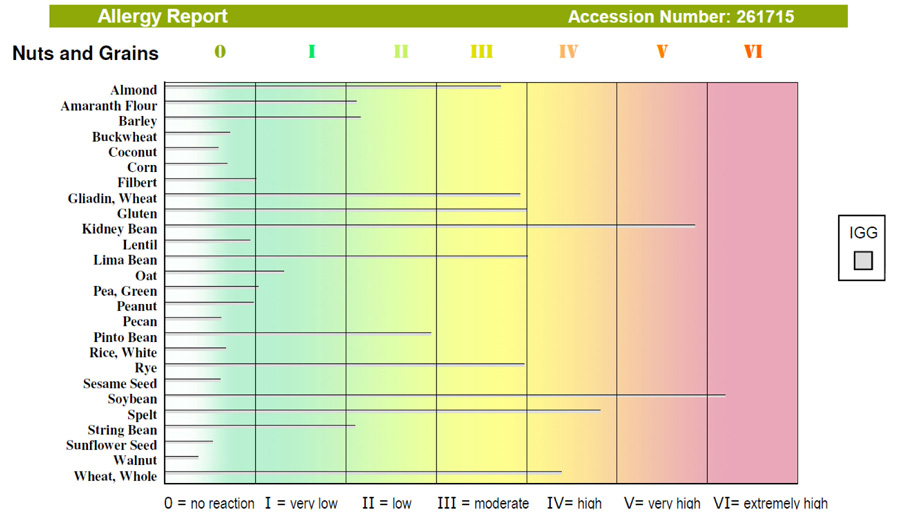Food Sensitivity Testing may be helpful if you experience any of the following symptoms: ADD/ADHD, irritable bowel syndrome, headaches, high blood pressure, inflamed blood vessels (usually show up as small red or purple dots on legs), asthma,, recurrent lung infections, skin conditions, joint pain, anxiety or depression, runny nose or watery eyes and many other symptoms.
 Why test for food intolerance?
Why test for food intolerance?
• Food intolerance occurs with the foods you eat most often.
• Most people are unaware that they are eating foods that make them sick.
• IgG reactions are much more common than IgE reactions, affecting as many as 1/3 of the general population.
• IgG reactions that cause food intolerance take hours to days to develop; making them very difficult to uncover without testing.
• More than 100 diseases and conditions are associated with food intolerance.
• More than 2/3 of people with chronic health conditions have IgG reactions to food.
Blood spot testing for IgG provides a simple, painless and practical means for practitioners to uncover potential causes of allergic reactions and allergy related disease. Specific IgG quantification has been utilized in research settings to assess and investigate Type I and Type III allergies respectively. IgG reactions develop slowly, up to several hours or days after exposure to a food allergen, so testing is often the only way of determining which foods are responsible.

The allergy test report graphs IgG immune response to each of the tested food allergens. If you have any other questions regarding food sensitivity testing and require more information or would like to view a sample report contact us at the clinic or simply call to reserve your appointment today!







